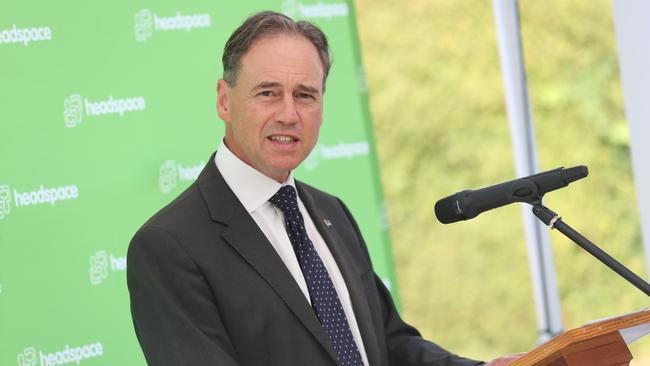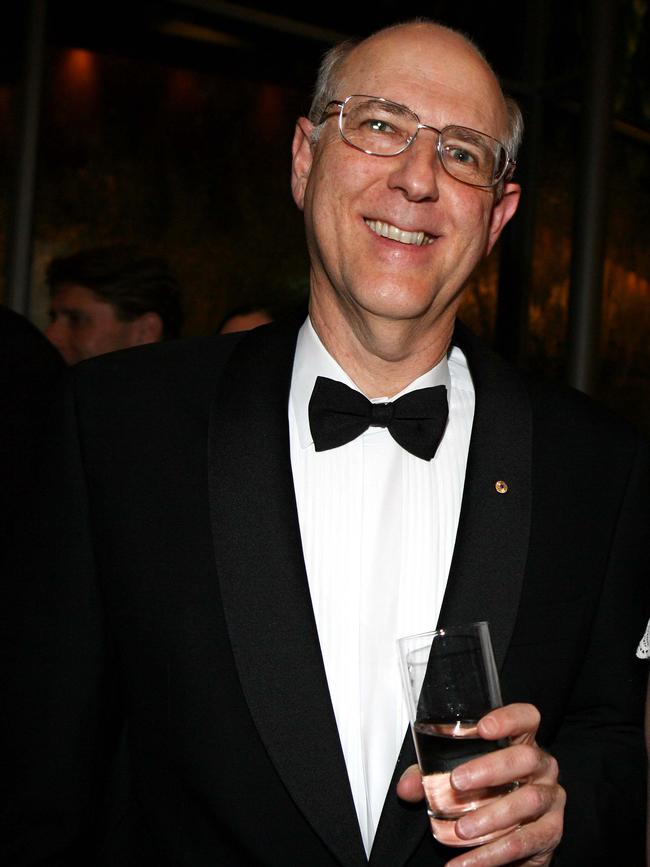Biotech HaemaLogiX plots 2025 IPO, ramps up blood cancer trials
HaemaLogiX, which counts former minister Greg Hunt as a director, is readying to float in 2025, as it seeks inroads into the $36bn global market for treating blood cancer multiple myeloma.

Biotech HaemaLogiX – which counts former health minister Greg Hunt as a director – is preparing a 2025 ASX listing, as it seeks inroads into the $US23.3bn ($35.9bn) market for treating blood cancer multiple myeloma.
Fielding questions from The Australian about a mooted initial public offering, HaemaLogiX on Thursday confirmed it had hired Jefferies and Ord Minnett and was aiming for a listing in April or sometime in the second-quarter next year.
While some 41 per cent of the company is owned by its founders including Dr Rosanne Dunn, Bryce Carmine, Dr John Cullity and Alan Liddle, HaemaLogiX also has a number of well-known financial backers on its shareholder register.
They include former Macquarie Group chief executive Allan Moss, chief of family office network group The Table Club James Burkitt and a Platinum Asset Management fund. Mr Hunt – who announced his retirement from federal politics three years ago – joined the HaemaLogiX board in May. At the time he highlighted the calibre of the company’s scientific advisory board and said immunotherapy and other emerging therapies could deliver “invaluable benefits” to patients.
The HaemaLogiX board is helmed by Dr Cullity.
Plans for a sharemarket listing next year will follow a pre-IPO raising which HaemaLogiX is embarking on this month, with a target to raise $15m to $20m from investors by mid-December. The company’s current valuation is $154m and the latest raising is being earmarked for the next clinical trial for its KappaMab immunotherapy drug, slated for next year.
HaemaLogiX’s aim is to improve the quality of life and survival times of those suffering from incurable blood cancers while it is also investigating the application of its drugs for auto-immune diseases, including amyloidosis. It focuses on technologies such as antibody-based immunotherapies, including monoclonal antibodies, CAR-T cells and bispecific antibodies. The new immunotherapy drugs KappaMab and KMA.CAR-T promote the death of cancer cells.
According to the Cancer Council’s website, it’s estimated that more than 2,600 people were diagnosed with multiple myeloma in 2023. Myeloma Australia estimates there are 18,000 Australians currently living with the blood cancer, while in the US there are more than 200,000 patients living with it.

HaemaLogiX told its investors this week multiple myeloma – the majority of patients have multiple bone lesions at the time of diagnosis – was the second most common haematological cancer and had caused about 1,100 deaths in Australia this year. With no cure, some 42 per cent of patients die within five years of diagnosis.
“We really do want to bring these safer, more effective drugs to patients, and that has been our driving force,” Dr Dunn said in an interview. She is a board member and also the scientific founder of HaemaLogiX, with more than two decades of experience across immunology, haematology, translational medicine and drug development.
Therapeutic antibody KappaMab has been the subject of three clinical trials showing improved patient outcomes.
KappaMab, which can be used in conjunction with standard drug treatments, in the latest completed clinical trial showed a 46 per cent decline in the risk of death compared to control groups, while the overall response rate to the treatment was 83 per cent.
Professor Andrew Spencer, head of malignant haematology and stem cell transplantation service at The Alfred Hospital, led the Australian clinical trials for HaemaLogiX and is also a member of the company’s six-member scientific advisory board.
Biotech investors will, however, be mindful of risks that accompany these sorts of companies, including around the clinical trials and obtaining the required regulatory approvals to market and distribute the treatment. Commercialisation can also be a lengthy process. Dominant providers of treatment drugs in the global myeloma market include New York-listed Bristol Myers Squibb and the pharmaceutical companies of Johnson & Johnson, Janssen.
HaemaLogiX’s managing director Damian Clarke-Bruce highlighted the global multiple myeloma market was forecast to expand to US$31.5bn in 2028 and said the company was confident in its products and bringing them to patients.
“We have two distinct vehicles and our drugs and our target are significantly differentiated from what’s on the market,” he said.
“We’re confident that we will have good efficacy with an excellent safety profile … this is great translational science.”
Mr Clarke-Bruce joined HaemaLogiX about a year ago, after a stint running ASX-listed Race Oncology.
Last year, HaemaLogiX entered into a co-development agreement with the Peter MacCallum Cancer Centre for the first human trial of the former’s CAR-T immunotherapy, KMA.CAR-T, for kappa-type multiple myeloma.
Mr Clarke-Bruce said that therapy was in the manufacturing stage and the company aimed for the first patient to be in about the second quarter of next year. He wants to take both products to market in Australia and globally, including in the US.
The company is telling investors it has 75 patent filings with tenures ranging from 2036 to 2045. HaemaLogiX’s preliminary view is that it will raise $50m as part of next year’s IPO.
HaemaLogiX, in its current form, has so far raised $24.1m.
The domestic pipeline for IPOs has fattened even after another quiet year for activity.
Several transactions have been executed in recent weeks, albeit with mixed success.
The float of payments firm Cuscal on Monday saw the stock decline from its $2.50 debut price.
On Thursday, Cuscal’s shares closed at $2.40. Investors are hoping HMC Capital’s float of a $4.2bn data centre trust in December will inject more confidence into the IPO market.




To join the conversation, please log in. Don't have an account? Register
Join the conversation, you are commenting as Logout